Spine disorders on the rise in industrial zone: Doctorss
Sitting postures and lifestyle disorders are the key reasons behind the increasing low back pain difficulties, besides impacts of underlying diseases, said experts.
More than three percent of the total deaths in India between the age group 15-69 occur every year due to renal failure or kidney diseases.
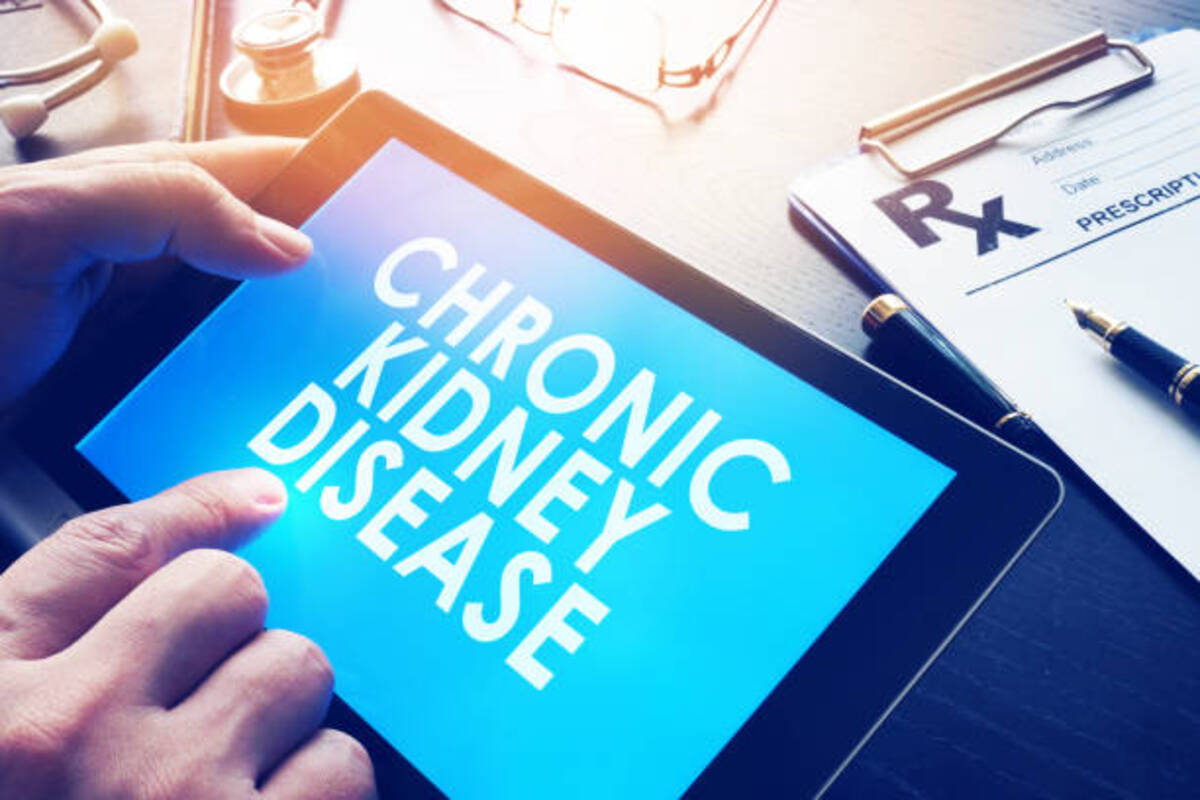
Chronic Kidney Diseases
Chronic Kidney Diseases: Renal failures and Kidney diseases among the young and not so young are becoming a huge burden on the medical system in the country and digging deep into the pockets of the people. More than three percent of the total deaths in India between the age group 15-69 occur every year due to renal failure or kidney diseases.
According to an estimate by the National Kidney Foundation, about ten percent of the adult population has some form of kidney disease, and nearly 200,000 people get afflicted with severe kidney disease (end-stage kidney disease) every year unfortunately over 90% of these deaths are due to lack of access and affordability of renal replacement therapy in the form of dialysis or transplantation. A study by the National Medical Journal of India estimates that renal failure alone led to 136 000 deaths in 2015.
Advertisement
Kidney disease signals that your kidneys can’t filter blood the way they should. The disease is called “chronic” (CKD) because the damage to your kidneys happens slowly over a long period. This damage can cause waste to build up in your body. CKD can also cause other health problems. You may develop complications like:
Advertisement
Kidney disease also increases your risk of having heart and blood vessel disease. These problems may happen slowly over a long time. Early detection and treatment can often keep chronic kidney disease from getting worse. When kidney disease progresses, it may eventually lead to kidney failure, which requires dialysis or a kidney transplant to maintain life.
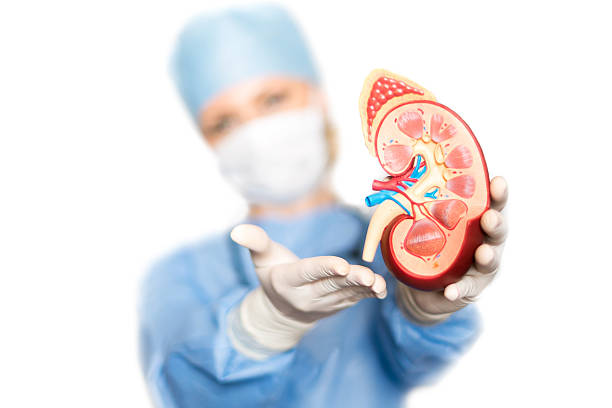
Dr. Vijay Kher, renowned Nephrologist and Chairman of the Medical Board and Department of Nephrology & Kidney Transplant at Epitome Kidney Urology Institute & Lions Hospital said, “Kidney disease is the 8th common cause of death in our country. Sometimes people are only able to realize the symptoms when the disease has already progressed to End-Stage Renal Disease(ESRD). Focused and super-specialized healthcare institutes like Epitome, can be major support not only in the treatment of disease but also in disease prevention as well.”
He further added, “There has been a significant rise in the incidence of risk factors of CKD across the world and especially in India with a global epidemic of diabetes, hypertension, Covid-19 pandemic, and obesity. Unfortunately, a majority of chronic kidney disease patients in India (>50%) are left undiagnosed with kidney disease till a very late stage of the disease.”
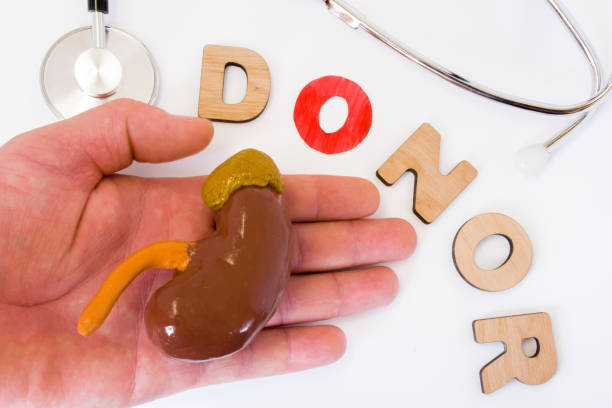
Highlighting the most important factors responsible for kidney disease Dr, Kher said, “Once kidney disease develops and progresses to end-stage renal disease (ESRD), there is limited access to renal replacement therapy (dialysis or transplant) in India. This is mainly due to limited infrastructure and insufficient trained manpower. Also, there is a lack of donors hence the patient has to depend more on dialysis than on transplant.”
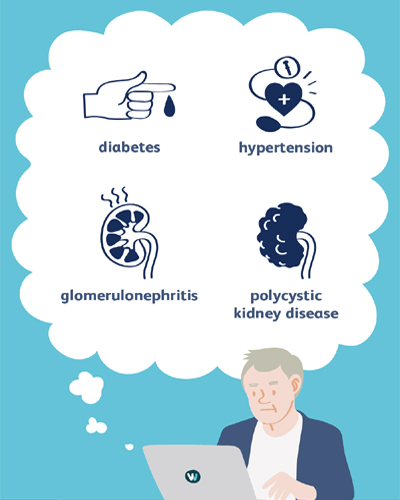
Diabetes and high blood pressure, or hypertension, are responsible for two-thirds of chronic kidney disease cases.
Diabetes: Diabetes occurs when your blood sugar remains too high. Over time, unmanaged blood sugar can cause damage to many organs in your body, including the kidneys and heart and blood vessels, nerves, and eyes.
High blood pressure: High blood pressure occurs when your blood pressure against the walls of your blood vessels increases. If uncontrolled or poorly controlled, high blood pressure can be a leading cause of heart attacks, strokes, and chronic kidney disease. Also, chronic kidney disease can cause high blood pressure.
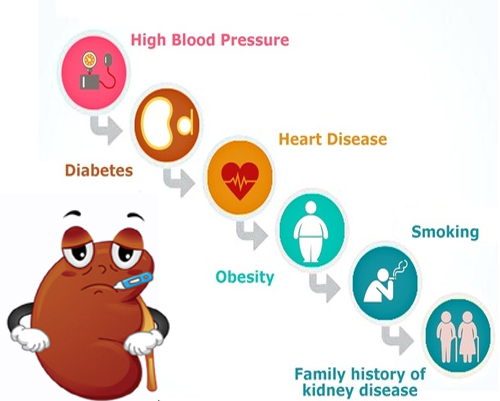
Anyone can get chronic kidney disease at any age. However, some people are more likely than others to develop kidney disease. You may have an increased risk for kidney disease if you:
Diabetes. Diabetes is the leading cause of CKD. High blood glucose, also called blood sugar, from diabetes can damage the blood vessels in your kidneys. Almost 1 in 3 people with diabetes have CKD.
High blood pressure. High blood pressure is the second leading cause of CKD. Like high blood glucose, high blood pressure also can damage the blood vessels in your kidneys. Almost 1 in 5 adults with high blood pressure has CKD.
Heart disease. Research shows a link between kidney disease and heart disease. People with heart disease are at higher risk for kidney disease, and people with kidney disease are at higher risk for heart disease. Researchers are working to better understand the relationship between kidney disease and heart disease.
Family history of kidney failure. If your mother, father, sister, or brother has kidney failure, you are at risk for CKD. Kidney disease tends to run in families. If you have kidney disease, encourage family members to get tested. Use tips from the family health reunion guide and speak with your family during special gatherings.
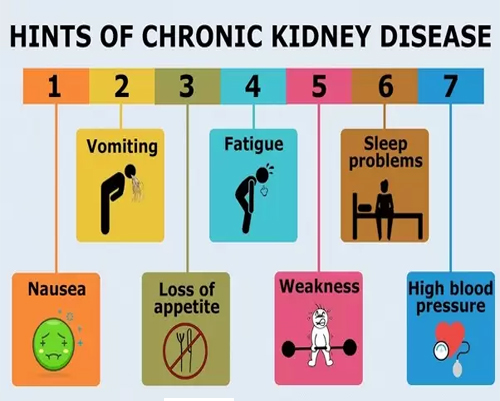
1. chest pain
2. dry skin
3. itching or numbness
4. feeling tired
5. headaches
6. increased or decreased urination
7. loss of appetite
8. muscle cramps
9. nausea
10. shortness of breath
11. sleep problems
12. trouble concentrating
13. vomiting
14. weight loss
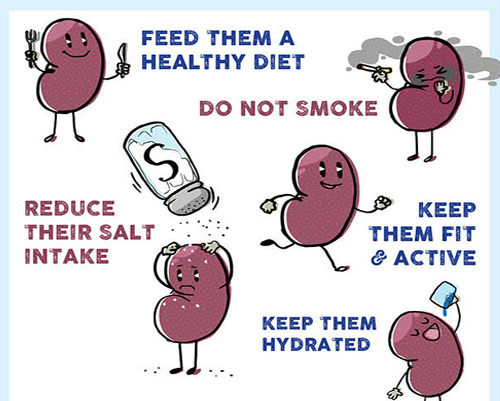
To reduce your risk of developing kidney disease:
Manage your medical conditions with your doctor’s help. If you have diseases or conditions that increase your risk of kidney disease, work with your doctor to control them. Ask your doctor about tests to look for signs of kidney damage.
As per National Kidney Foundation, A new comprehensive report shows that people hospitalized with COVID-19 are at significant risk of AKI, which can lead to serious illness, dialysis, and even death.
The study found patients with COVID-19, who were hospitalized between March 11 and April 26, were twice as likely to develop AKI as compared to non-COVID patients who developed AKI during the same period in 2019 – 56.9% versus 25.1% respectively.
AKI appears to be a marker of COVID-19 infection severity and the mortality rate is higher for these patients.
Dr. Manan Bakshi, a Nephrologist at a leading hospital in the national capital said, “a person suffering from severe cases of COVID-19 may show signs of kidney problems including high levels of protein or blood in the urine and abnormal blood work, even if they are not kidney patient. The factors responsible here are COVID Virus attacking kidney cells, blooding clotting, and many others. Covid causes waste to build up in your blood and can be deadly.”
He further added, “Too little oxygen can also cause kidneys to malfunction and Cytokine storms can destroy kidney tissue.”
Cytokines are small proteins that help the cells communicate as the immune system fights an infection. But this sudden, large influx of cytokines can cause severe inflammation. In trying to kill the invading virus, this inflammatory reaction can destroy healthy tissue, including that of the kidneys.
A patient Rupsa who recovered from Chronic Kidney Disease shared her experience of treatment. Rupsa said that she got diagnosed with CKD just a month after recovering from Covid-19. As per her knowledge, she never suffered from hypertension or diabetes but still, her kidney cells got affected.
She said that the reason behind her kidney disease was the blood clotting that was created in her body after suffering from Covid-19.
(With inputs from NIDDK)
Advertisement